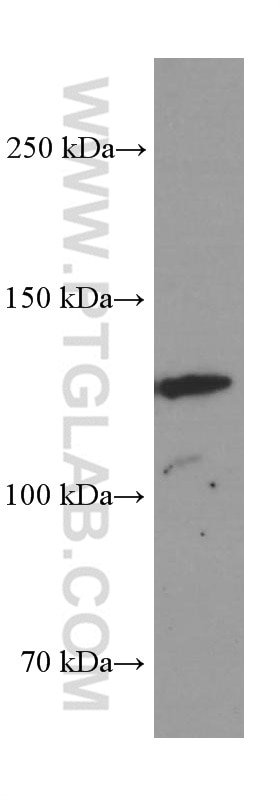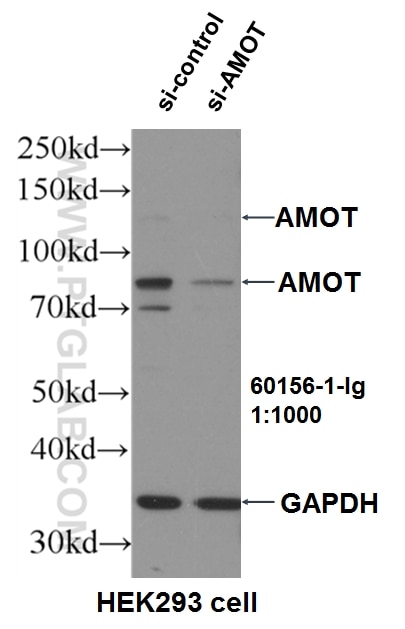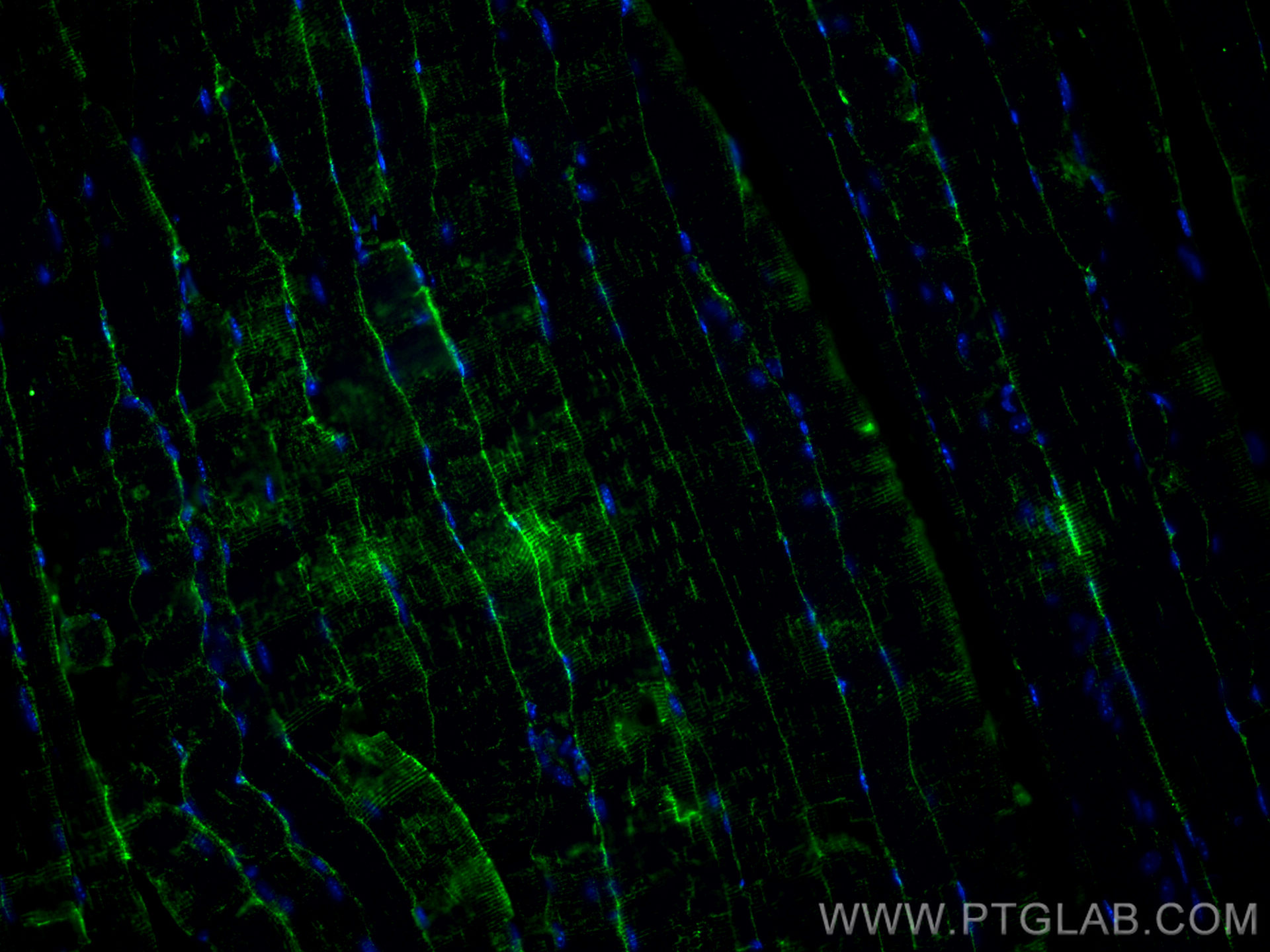Tested Applications
| Positive WB detected in | SGC-7901 cells, HEK-293 cells |
| Positive IF-P detected in | mouse skeletal muscle tissue |
Recommended dilution
| Application | Dilution |
|---|---|
| Western Blot (WB) | WB : 1:1000-1:4000 |
| Immunofluorescence (IF)-P | IF-P : 1:200-1:800 |
| It is recommended that this reagent should be titrated in each testing system to obtain optimal results. | |
| Sample-dependent, Check data in validation data gallery. | |
Product Information
60156-1-Ig targets AMOT in WB, IF-P, ELISA applications and shows reactivity with human, mouse samples.
| Tested Reactivity | human, mouse |
| Host / Isotype | Mouse / IgG2b |
| Class | Monoclonal |
| Type | Antibody |
| Immunogen |
peptide Predict reactive species |
| Full Name | angiomotin |
| Calculated Molecular Weight | 118 kDa |
| Observed Molecular Weight | 130 kDa |
| GenBank Accession Number | NM_001113490 |
| Gene Symbol | AMOT |
| Gene ID (NCBI) | 154796 |
| RRID | AB_10644279 |
| Conjugate | Unconjugated |
| Form | Liquid |
| Purification Method | Protein A purification |
| UNIPROT ID | Q4VCS5 |
| Storage Buffer | PBS with 0.02% sodium azide and 50% glycerol, pH 7.3. |
| Storage Conditions | Store at -20°C. Stable for one year after shipment. Aliquoting is unnecessary for -20oC storage. 20ul sizes contain 0.1% BSA. |
Background Information
predominantly in endothelial cells of capillaries as well as larger vessels of the placenta where it may mediate the inhibitory effect of angiostatin on tube formation and the migration of endothelial cells toward growth factors during the formation of new blood vessels. The most abundant expression was found in the placenta and skeletal muscle. AMOT has two isoforms with MW 130 kDa (p130) and 80 kDa (p80). This antibody only recognizes p130.
Protocols
| Product Specific Protocols | |
|---|---|
| IF protocol for AMOT antibody 60156-1-Ig | Download protocol |
| WB protocol for AMOT antibody 60156-1-Ig | Download protocol |
| Standard Protocols | |
|---|---|
| Click here to view our Standard Protocols |








